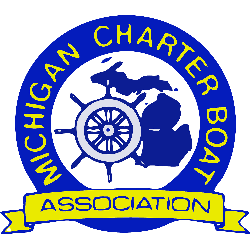Spring
President's Report
From the Desk of President Bill Winowiecki
The impact of these warmer temperatures on our lakes and their ecosystems is a topic of great interest and concern. How will our fisheries be affected, and what changes might we expect in the ecosystem as a whole?
The Michigan Charter Boat Association (MCBA) Board has been quite active despite these unusual weather patterns, welcoming new members who bring fresh perspectives and ideas. Captains Mark William, Bruce Shane, and Bill Dunk join the board, contributing to our efforts to modernize and adapt to the challenges of the present day. Together with existing officers and board members, they’re steering the MCBA toward embracing the digital age while upholding our mission to safeguard the Great Lakes fishery, support our profession, and promote the businesses of MCBA members.
As we move forward, it’s important to express gratitude to retiring board members Rich Haslett and George Freeman for their dedicated service. Rich, who has served as President and Vice-President over several terms since 2003, along with his wife Linda, who managed our sports shows, will continue to assist their successors. Similarly, George, who served as the Central Lake Michigan director since 2009, has graciously agreed to stay on as an advisor to the new board. Their experience and wisdom will be invaluable as we navigate the challenges ahead.
Protecting the fishery remains a top priority for the MCBA. Currently, we’re closely monitoring the appeal of the Tribal Decree by the Coalition to Protect Michigan Resources, recognizing that its outcome could significantly impact the future of our fishery. Additionally, there’s concern about potential threats posed by state commercial fishing interests, with two versions of the HB 5558 commercial fishing bills expected to be released soon.

Our Future
Tribal Decree and More
In addition to legislative advocacy and policy discussions, the MCBA is actively engaged in on-the-ground efforts to protect and preserve our fisheries. We collaborate with various stakeholders, including government agencies, conservation organizations, and local communities, to implement sustainable management practices and conservation initiatives. These efforts include habitat restoration projects, stocking programs, and educational outreach to promote responsible angling practices and environmental stewardship.
One area of particular concern is the potential impact of aquaculture on the Great Lakes ecosystem. While aquaculture has the potential to contribute to food security and economic development, there are also significant environmental risks associated with intensive fish farming in open water environments. The MCBA is closely monitoring proposals for aquaculture operations in the Great Lakes and advocating for stringent regulations to minimize negative impacts on native fish populations and water quality.
Welcome New Board Members & Directors
MCBA BOARD
President:
|
Vice President:
|
Secretary:
|
Treasurer:
|
MCBA DIRECTORS
N. Lk. Michigan
|
Central Lk. Michigan
|
S.Lk. Michigan
|
N Lk. Huron
|
S.Lk.Huron
|
Erie &St Clair
|
U.P.
|
Interesting in
|













